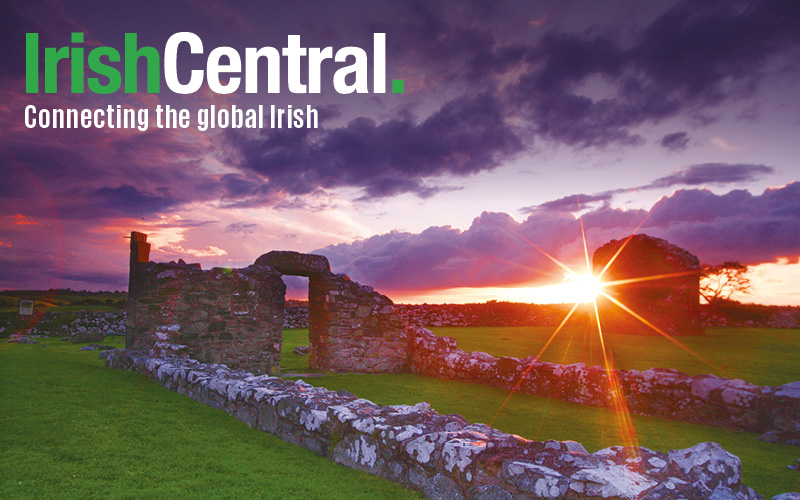“The north wind shall blow and we shall have snow, and what will the robin do then, poor thing. It will stay in the barn to keep itself warm, and bury its head in its wing poor thing.”
That little poem hung on the wall of my junior school in rural Ireland, but I could recite it ever before I went there. My father knew it, as did my mother, and all my neighbors, even those who rarely turned up for tuition. It was the funeral bell of summer, the dirge of autumn, the lamentation of spring. Winter was closing in, if not already upon us.
I could sympathize with the robin. It was symbolic of all of us whose rural inclinations and rhythms were as old as nature itself. It wasn’t so much that the frost and the snow were upon us, but also, those other cantankerous outfalls that the dynamic duo had in store for us. It was the drear and the misery, the long, long nights imposed upon us, the season of ‘drawing in,’ as we called it. That was what the robin did in the cross trees of the barn. Bury the head. Not just to sleep but to semi-hibernate.
Ever before the winter had fully set in its statutory mode, its incoming outriders had entered dialogue.
"Nights are drawing in, Mick."
"Aye, for sure. Back to the oil lamp again. And the game of cards. And the dark."
What made us like so? Anticipating the long nights before they had landed. The prevailing darkness was merely the overture, it was the dampness and the east wind that took center stage, spiked our humor, and created a cold that embedded itself in mind and body. It slipped into our arterial configuration and into our souls. That’s what you get when you’re sited in the Atlantic, at latitude between 51 and 55 degrees north, and longitude 5.1 to 10 degrees west. Rain and damp.
Ireland should never be sited there, according to an old man I once met in a pub in Dingle. When islands were being sited, he told me, Ireland had two choices, one in the Mediterranean, south of Gibraltar, and another east of Martha’s Vineyard. But the idiot of a god responsible for the Atlantic got his numbers in a twist and the siting came out crossways.
My father was a sedate man. Seldom was he fazed, seldom did he behave out of the convention of his time. When his work was done, and the dark and the drear had settled in, he would sit in his chair beside the fire, smoke his cigarettes and be the model of propriety as he always was. But sometimes, he would rise up, put on his hat, and his overcoat, and without a word, head out into the pervading dark. He would walk to the crossroads where an old couple lived. They would make a place for him beside the fire and soon run out of conversation. But they sat there until near midnight when he would take his hat and coat again, and return home. It wasn’t conversation that brought him out; it was the change of milieu.
Nowadays, we have all the luxuries that keep the drear and the cold and the fog at bay. Electrification not only brightened the dark but spawned a gamut of entertainment and other interests that bring the world to the sitting room. The rural Ireland that I grew up in, way back in the outer half of the nineteen sixties, has vanished almost beyond recall. And soon it will pass quietly to oblivion.
Back then the fire was the antidote that kept the drear and fog and the dampness outside. It was so vital that tradition coined a magnitude for it. It brought ill luck if ever it died completely. When my father moved to a new house, he brought embers from the old to make the new, so that the fire continued unbroken.
But there were other antidotes to the dampness and the drear and the cold apart from firelight and warmth and visiting one’s neighbors. Christmas was the stand out relief. The word had and still has a halo of celebration about it, not only for its religious context, but for what it signified as a landmark to a better and longer day. Twenty days to Christmas was but three weeks away. One could then be looking for a glimmer of light seeping its way from the horizon, lighting a spot that yesterday was shrouded in pale darkness.
There are many reasons why December 25th was chosen to mark the birth of Christ. It was already a time of celebration. Around this date the Romans held the festival of Saturnalia, to celebrate the winter solstice in the Northern Hemisphere. The winter solstice is the shortest day of the year. From then on, days will grow longer, little by little, almost imperceptibly. In my time and place, and in the rural argot that prevailed there, that imperceptible faint, barely visible lengthening was called a "cock’s foot."
Bit by bit, Rome grew. Bit by bit that faint visibility gathered momentum and hearts gladdened. I still live in a rural part of Ireland, a few miles from the town of Birr, Co. Offaly, the undisputed middle of the country. My neighbor, Pat, is a farmer and still speaks the language of yesterday. Most days we have salutations and some small talk across the fence between our homes. Yesterday, now in the tail-end of January, he said.
"The cock is stepping it out now."




Comments